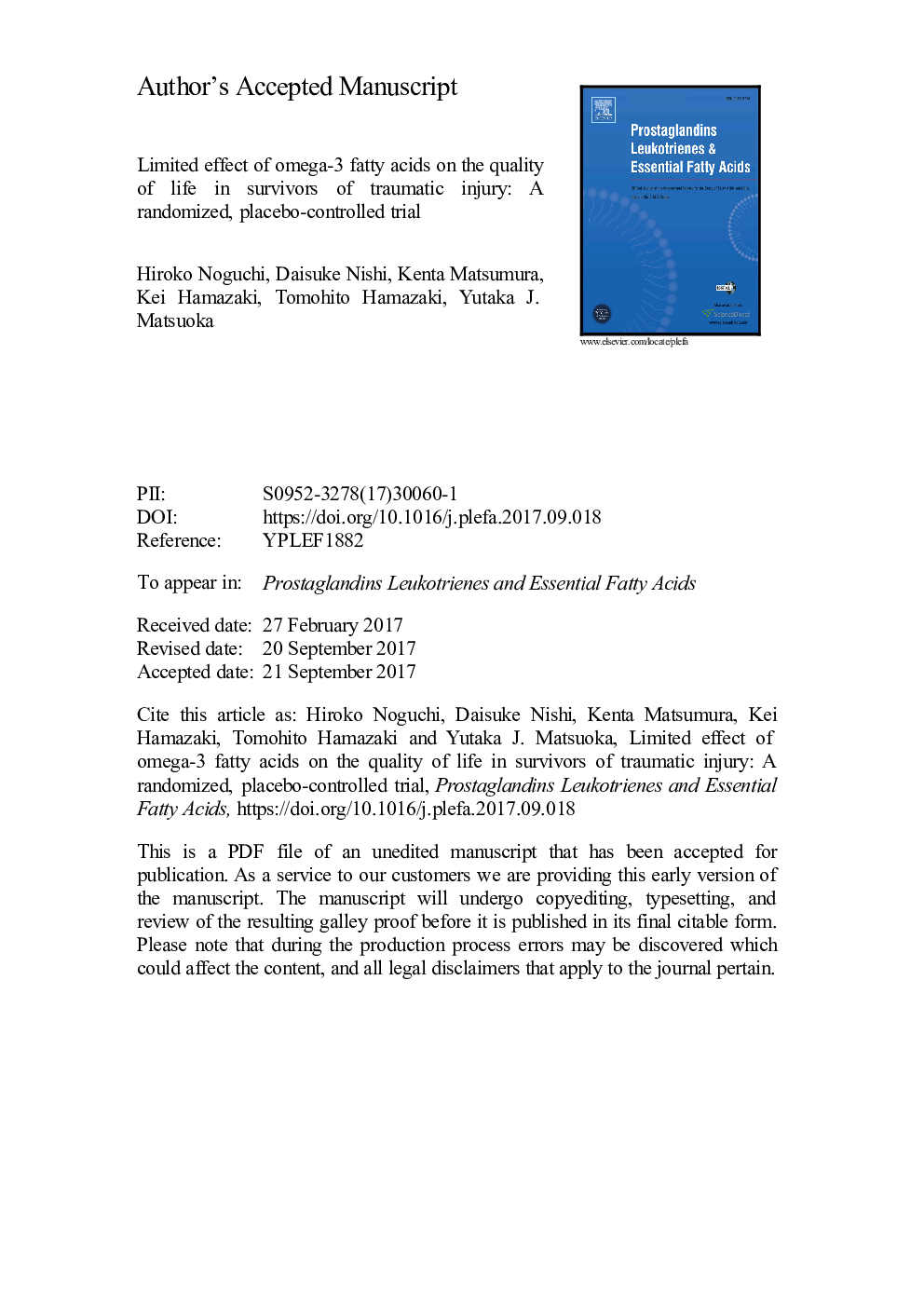| Article ID | Journal | Published Year | Pages | File Type |
|---|---|---|---|---|
| 5584829 | Prostaglandins, Leukotrienes and Essential Fatty Acids (PLEFA) | 2017 | 27 Pages |
Abstract
Empirical evidence is divided on whether n-3 polyunsaturated fatty acid levels are associated with quality of life (QOL). This study investigated the effects of docosahexaenoic acid (DHA) supplementation on QOL in survivors of traumatic injury. In this secondary analysis of a double-blind, randomized controlled trial, we recruited 110 trauma patients (82% men; mean age, 39.6 years) in an intensive care unit. Fifty-three received DHA-rich supplements and 57 received placebo for 12 weeks. We used the Medical Outcomes Study 36-Item Short Form Health Survey (SF-36) to assess QOL at the end of intervention. DHA did not significantly affect any QOL domain on the SF-36 after 12 weeks. In the DHA group, changes in the erythrocyte levels of eicosapentaenoic acid (EPA) + DHA and EPA were positively correlated with the SF-36 mental component. DHA did not influence QOL of trauma patients, but increased EPA levels during the trial were associated with better QOL in patients receiving omega-3.
Related Topics
Life Sciences
Biochemistry, Genetics and Molecular Biology
Clinical Biochemistry
Authors
Hiroko Noguchi, Daisuke Nishi, Kenta Matsumura, Kei Hamazaki, Tomohito Hamazaki, Yutaka J. Matsuoka,
